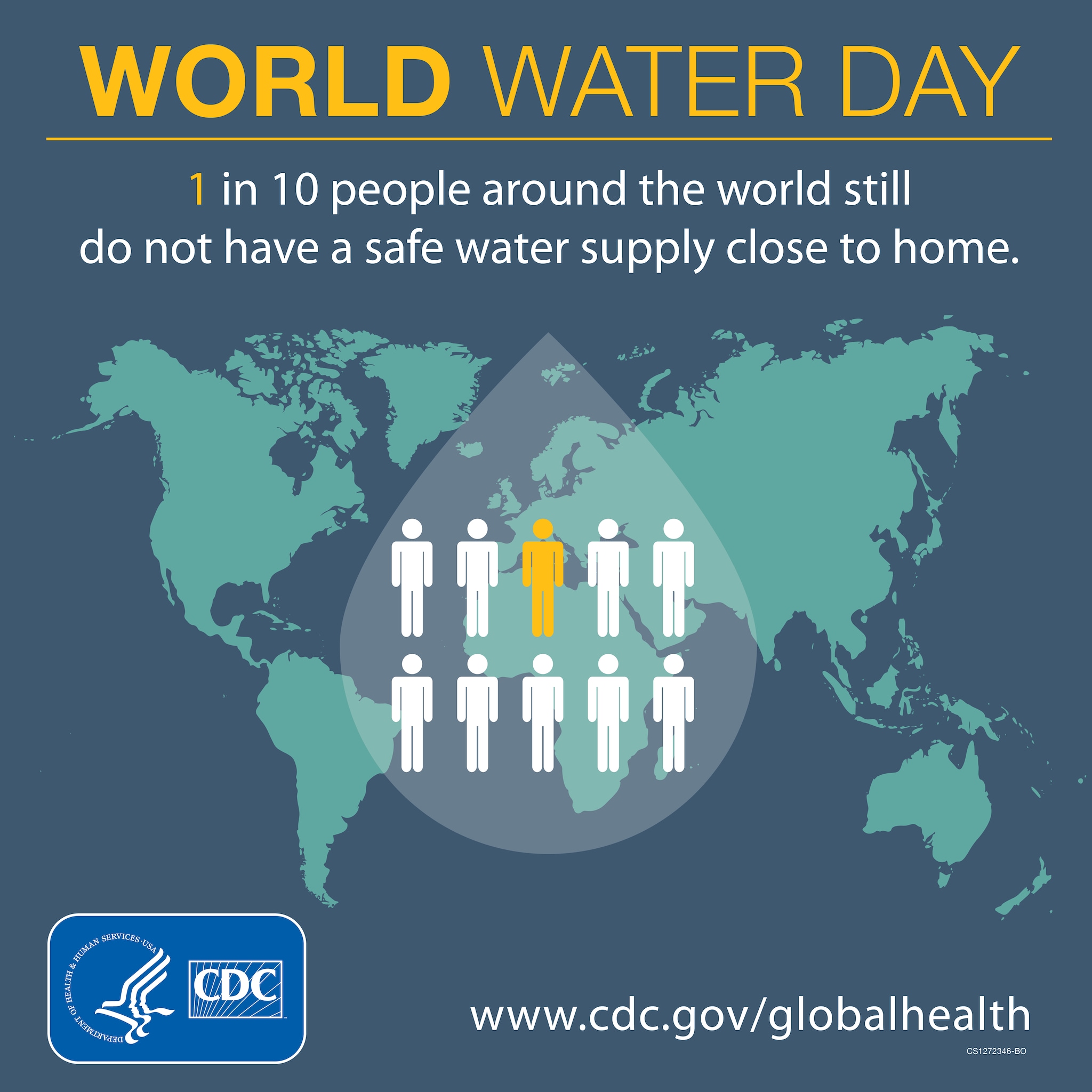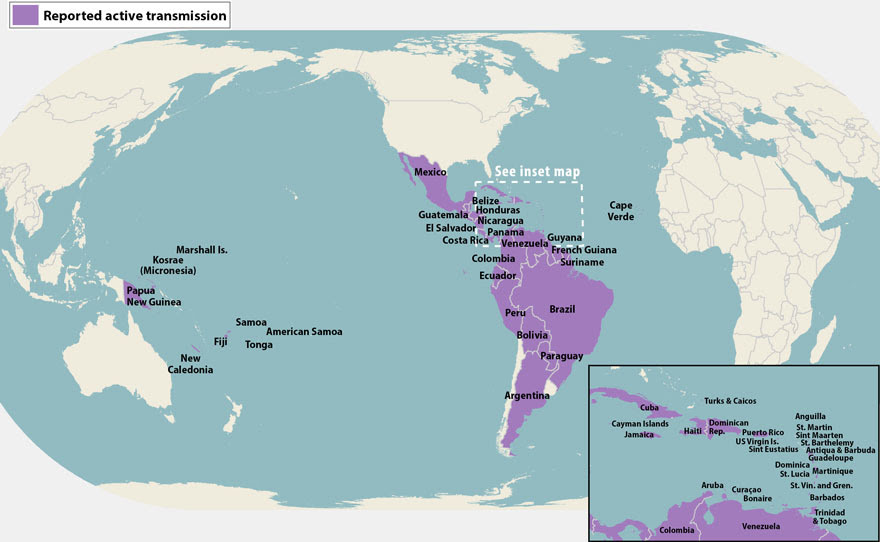

| Blog | ||
| ||
| Infographic | ||
| ||

| Video | ||
 | ||

| Story | ||
| ||
| CDC Zika Updates | |
|

On January 22, 2016, CDC activated the Incident Management System and, working through the Emergency Operations Center (EOC), centralized the response to the outbreaks of Zika occurring in the Americas and increased reports of birth defects and Guillain-Barré syndrome in areas affected by Zika. On February 1, 2016, the World Health Organization declared a Public Health Emergency of International Concern (PHEIC) because of clusters of microcephaly and other neurological disorders in some areas affected by Zika. On February 8, 2016, CDC elevated response efforts to a Level 1 activation, the highest response level at the agency.
CDC is working with international public health partners and with state and local health departments to
- Alert healthcare providers and the public about Zika.
- Post travel notices and other travel-related guidance.
- Provide state health laboratories with diagnostic tests.
- Monitor and report cases of Zika, which will helps improve our understanding of how and where Zika is spreading.
| In the News |
| 50 years of keeping bugs at bay: inside the CDC’s quarantine program STATFebruary 28, 2017 New Africa disease agency aims to prevent fresh Ebola crisis ReutersFebruary 15, 2017 India Deaths Investigation (Part 3, 13:45 mins.) CBC RadioFebruary 8, 2017 Dangerous Fruit: Mystery of Deadly Outbreaks in India Is Solved The New York TimesJanuary 31, 2017 In South Africa, Deadly Tuberculosis Strain Is Spread Directly The New York TimesJanuary 30, 2017 |
| On the Calendar |
| March 22: World Water Day March 24: World TB Day March 24: Purple Day for Epilepsy Awareness April 2: World Autism Day April 7: World Health Day April 11: World Parkinson's Day April 14: International Chagas Day April 17: World Hemophilia Day April 22: Earth Day |





















.png)












No hay comentarios:
Publicar un comentario